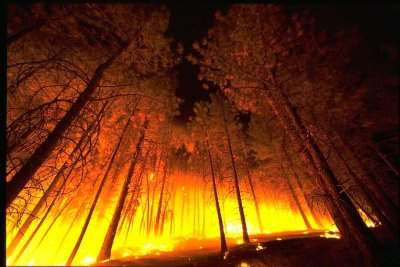 The NY Times ran a thought-provoking op-ed this morning that got me thinking about sin and rescue.
The NY Times ran a thought-provoking op-ed this morning that got me thinking about sin and rescue.In The person behind the Muslim, Anar Ali, a Muslim in Toronto, writes in response to the recent arrest there of alleged terrorists. Ali explains, at the end of his op-ed, the struggle of being identified with Islamic terrorists and the reasoning others have that he could explain why they do what they do. He writes:
Whether you want it or not, as a Muslim (secular and otherwise) you are automatically pulled into the debate on terrorism. Not that I don't want to discuss it, I do. But I want to discuss it as a citizen, not just a Muslim.This op-ed really struck a deep chord within me for two reasons:
As a Muslim, people expect you to be an expert, to have special inside knowledge on the topic. They want your opinion on the issue, your help in explaining and analyzing complex political issues, the history of Islam, the psychology of suicide bombers.
I have no sense of what motivates a terrorist (except maybe as a fiction writer, since it's my job to enter the hearts and minds of characters). Terrorists and radical Islamists live in a different place from me, psychologically and culturally, even if they were raised in Canada just as I was. To better understand these young men and why they turn to violence as a means to an end, it might make more sense to ask someone who was a skinhead, a member of the Irish Republican Army, a Tamil Tiger, or a Weatherman.
If you asked me, I would have to speculate, as most people do, from the sidelines.
First, Ali’s experience not only sharpens my resolve not to lump people into categories, but illicits a great deal of sympathy within me for people in Ali's position.
Second, and perhaps a bit more tangently, Ali's experience echoes within me as a Christian. While I’m not routinely asked to explain the reasoning of terrorists, I’ve been asked more than once to explain how someone can believe in God but hate Black people, beat-up homosexuals or bomb abortion clinics. Ali has given me another way to answer those questions: People like that—who turn to hate-filled violence as a means to an end—live in a different place from me.
Unlike Ali, however, I unfortunately can do more than speculate about people like that from the sidelines. I’ve a bit too much in common with them for my own comfort. Like Ali, I would have a hard time putting myself in the skin of a terrorist or someone who hates Blacks, beats-up homosexuals, or bombs abortion clinics, but I can understand how they got there. We don’t wake up one day and decide to do or be those things. It’s a bunch of little decisions—giving into a thought, an action or desire that’s more in line with our own selfish desires than what’s Right and True—that gets us there. Each decision like that is a walk down the wrong road—one that leads to a place of hate, violence, death and destruction.
Romans 1 shows us in detail how that works. If we give our own selfish thoughts or desires—or what the Bible calls sin—a small foothold in our lives, it starts to consume us. It’s got a voracious appetite, like a fire in a drought-ridden forest. Sadly, when we mix in the sway of communities that have built their way of life on something Untrue (terrorism, racism, etc.), some people don’t seem to have a chance to live any differently. Somewhere along the line, those who ended up terrorists or bombing abortion clinics in the name of God let their own thoughts and feelings (often reinforced by the community around them) replace God and Truth. I know how easy that is, because I give into sin too.
So, yeah, I get how they got there because I know sin all too well. But I also know something else: God gave us a way out. He’s given us a better way to live. He gives us a chance to get off that road—and help others get off it too. If we but cry out in surrender, he’s oh-so-quick to save us. He lavishes his life on us. He rescues us from ourselves. He changes us—often slowly, but surely. It’s not an easy life, but it’s a better life.
But he didn’t intend it to be a bunch of individual rescues: he wants a community of rescued people. He wants people living a new way of life together. I once heard someone say that we can’t love in isolation; we must love something or someone. Love by its very nature requires more than one. And it’s a community like that—built on the Truest thing—that will throw out the lifelines to those walking down the wrong road, both ourselves and those around us.
Sometimes, especially in the face of issues brought up by Ali’s op-ed, it seems a daunting task, this redemption of the world. But I must remember that it’s not me doing the redeeming. That’s God. He just invites me to live, solely by grace, in a different place: in the wide open spaces of his Kingdom with others who’ve cried out for rescue. And, by means beyond my understanding, he uses these walking wounded and perpetually healed in his work to rescue others.
Enough rambling. Blessings.
(Image: Forest Service, USDA)